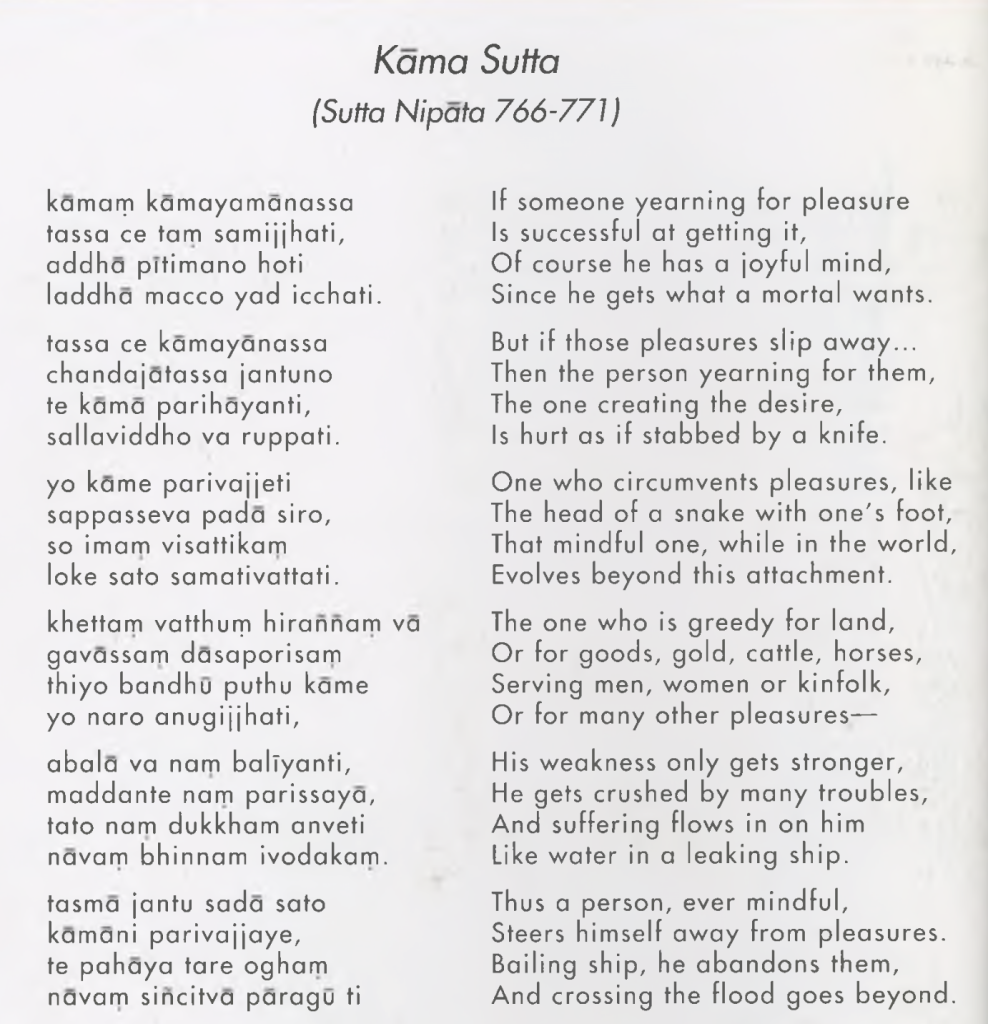
This is the Pali version of the better-known Sanskrit work, Kāma Sutra. Discerning readers may notice that the two texts are somewhat different (this one is shorter, for example). I’m translating the word “kāma” here as “pleasure,” but it really refers to the wanting of pleasure, the grasping after gratification through sensory objects, and thus denotes an emotional response rather than a feeling tone.
It is easy to underestimate the subtlety of the Buddha’s teaching here, and to thus caricature Buddhism as being world-denying. But notice the author of these stanzas is not saying that land, goods, kinfolk, etc. are evil, only that they are dangerous. It is the greed (anugijjha literally means going around like a vulture) for these things, which is generated within ourselves, that sets us up for disappointment and injury.
Mindfulness helps us steer a course around such attachment and beyond the suffering it brings with it. This ultimately represents a form of spiritual evolution toward a more empowered way of being human.